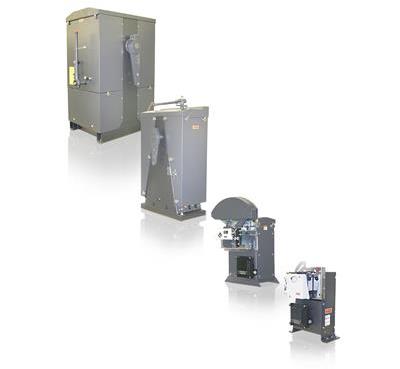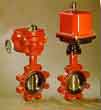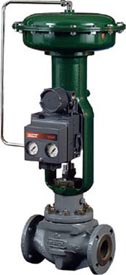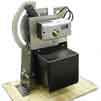Actuators

Electric Actuators

Electric actuators are well suited for applications where it is impractical and/or too costly to install and maintain an air supply for pneumatic actuators. They can be powered by AC or DC voltage from 12 to 480 volts depending on the size of the unit. On-Off, modulating, and spring return/fail safe action is available to produce a linear or rotary motion.
 Since the actuators electrical connections require an enclosure, it is available for a variety of control and feedback devices. These will frequently include a 4 to 20 mA control input signal, end of travel, position indicating, and torque limit switches, and a 4 to 20 mA actuator position output signal.
Since the actuators electrical connections require an enclosure, it is available for a variety of control and feedback devices. These will frequently include a 4 to 20 mA control input signal, end of travel, position indicating, and torque limit switches, and a 4 to 20 mA actuator position output signal.
 For situations that require fast, powerful, and very precise actuation, the electro-hydraulic actuator combines the power and speed of hydraulics with control and feedback advantages of the electric actuator.
For situations that require fast, powerful, and very precise actuation, the electro-hydraulic actuator combines the power and speed of hydraulics with control and feedback advantages of the electric actuator.

Electric and electro-hydraulic actuators are commonly used to interface with computerized control systems. Final elements controlled include boiler burners and dampers, product positioning on machinery, and ball, butterfly, globe and multi-turn gate valves.
Click here to request a quote for an electric or an electro-hydraulic actuator.
Pneumatic Actuator

Pneumatic actuators are well suited for applications where there is an existing air supply and air control signal system. The actuator normally requires a 60 to 100 psig air supply and a 3 to 15 psig control input signal for modulating service. Spring return fail open or closed, or double acting control action are all available. They are a good choice for hazardous area applications. They also provide fast and powerful linear or rotary motion.

For modulating control, pneumatic actuators are normally ordered with a positioner which accepts a 3 to 15 psig control input signal. The actuators can also be fitted with current to pneumatic transducers or I/P positioners which accept 4 to 20 mA control signals. Available accessories include pneumatic or electronic actuator position output signals, end of travel, position indicating, and torque limit switches, and pneumatic controllers.
Pneumatic actuators are most commonly used for automating ball, butterfly, globe, and plug valves. The actuator and sometimes the controller are usually an integral part of the control valve assembly. They are also used for dampers and other types of positioning control.
Click here to request a quote for a pneumatic actuator.




